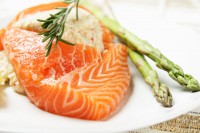
Proper nutrition is the foundation of good health, and it becomes even more important if you have received a diagnosis of cancer. Unfortunately, side effects of the disease and its treatment interfere with your eating plan at a time when you need it the most.
How can you overcome the challenges of eating well during cancer care? Here are some tips to guide you through each phase.
Before treatment
- Talk to your doctor or a nutritionist about recommended foods and dietary supplements.
- Start following a healthy diet immediately to boost your strength and reduce chances of infection.
- Stock your kitchen with easy-to-prepare foods, including items like soup and broth that you can eat even when you’re not feeling well.
During treatment
- Consume as much as you can during times when you have the greatest appetite. This will help sustain you during the periods when you don’t feel like eating.
- Include protein-rich foods to maintain strength and rebuild tissues.
- Enlist help if you don’t feel up to cooking.
After treatment
- Introduce a variety of foods back into your diet as much as possible for well-rounded nutrition.
- Cook large batches of meals and freeze the extras for future use.
- Reduce or eliminate your consumption of processed foods. Use low-fat preparation methods such as broiling, steaming and roasting.
At Issels®, we take your lifestyle and other individual factors into consideration when developing our personalized immuno-oncology cancer care programs. Contact us for more information about genomic testing, cancer vaccines and other elements of our non-toxic immunotherapy treatments.





